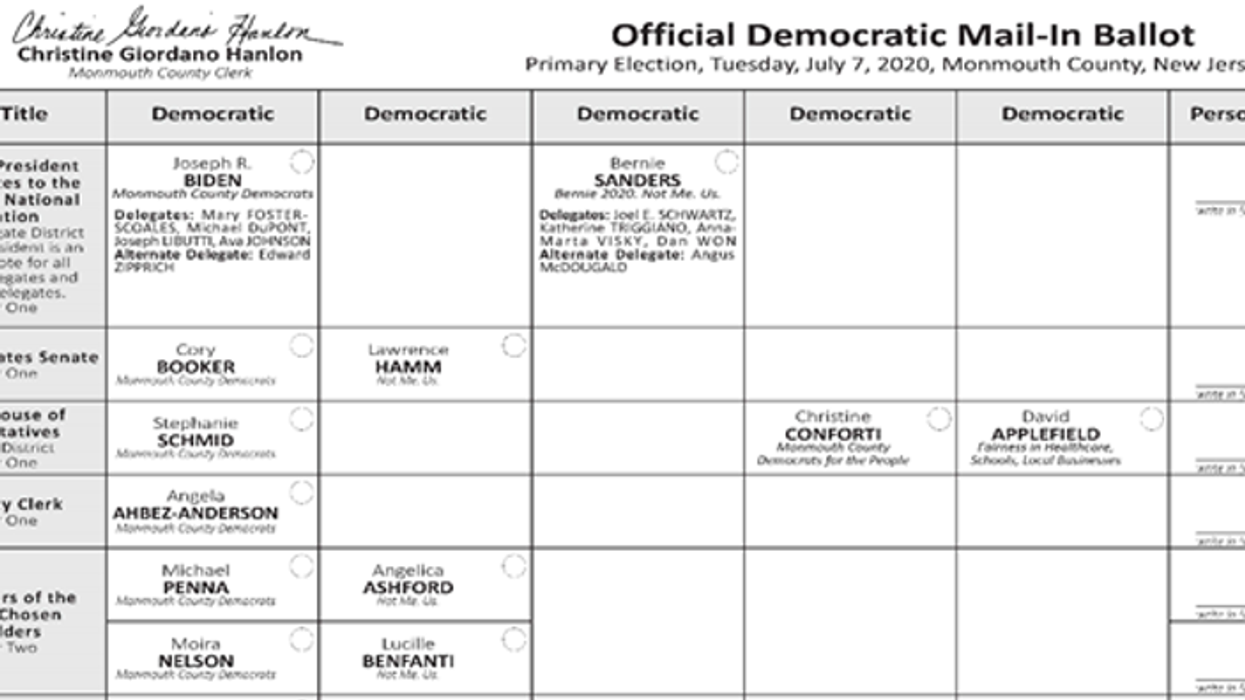A unique power that New Jersey gives local partisan officials, to design primary ballots giving preferential treatment to favored candidates, is being challenged in a lawsuit as an unconstitutional form of political discrimination.
The federal claim, filed Monday by six defeated politicians and a consortium of progressive groups, offers an unusual twist on one of the prevailing complaints from the good-government movement: The people who run the two major parties have way too much power to repel the sort of outsider or insurgent candidates who would be more committed to fixing the system.
This may be nowhere more true than in New Jersey, where the Democratic and Republican party bosses in the 21 counties have an exceptional ability to steer election outcomes.
Endorsements from these local political machines come with a tangible and enormous benefit. The primary ballots are designed so the blessed legislative and other down-ballot candidates appear on what's known as "the county line" — generally the first column, directly under the names of the party's incumbents or best-known candidates for statewide offices including governor or senator.
Sometimes, the county bosses put their endorsed candidate in one column and all the others in a separate column, causing confusion and double-voiding that results in the ballot being tossed.
A study of last year's primaries by Rutgers sociologist Julia Sass Rubin, focused on congressional candidates who got the preferred treatment in some counties but not others, concluded the county line boosted a politician's vote share by an astonishing (and very often dispositive) 35 percent.
Working assiduously to secure the county line is almost certainly a major reason why no incumbent state legislator has lost a primary in the state since 2009.
The suit wants federal Judge Freda Wolfson of Newark to order the counties to design their primary ballots like almost all the others in the country, with all candidates for a particular office grouped together. It alleges the current system violates the free speech and equal protection rights of the disfavored candidates.
State party bosses, who have been fighting an earlier version of the suit since last summer, say the power over the ballot design is within their discretion.
"This antiquated practice is truly indefensible," countered Sue Altman, who runs New Jersey Working Families, one of the plaintiffs. "If we learned anything over the last four years, it's that our democracy is fragile and requires a vigorous effort to maintain. This expansive coalition is fighting to make democracy stronger in New Jersey. Up and down the state advocates agree: It is long past time for real, competitive primary elections. Our democracy is at stake. This is a matter of equity and whose voice counts."
"New Jersey's use of the line is a voter suppression tactic, used to pre-determine election outcomes and diminish the voice of voters," said Jesse Burns, executive director of the state League of Women Voters chapter.





















